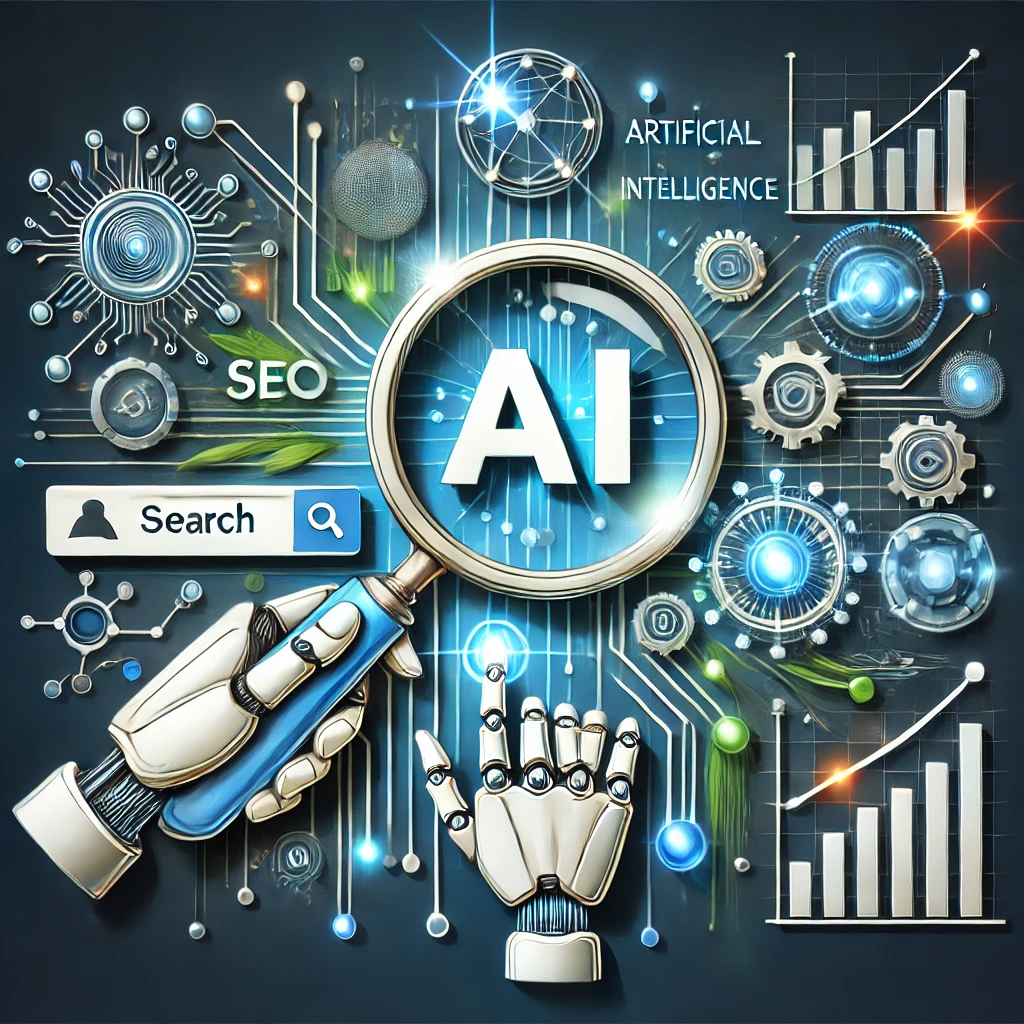Abacus.AI: Your Ultimate Guide in 2024

Introduction
Abacus.AI is at the forefront of revolutionizing artificial intelligence for businesses seeking efficient and scalable solutions. In a world where rapid AI adoption is crucial, this ai tool simplifies the complexities of building, deploying, and maintaining machine learning models.

This cutting-edge platform offers fully autonomous, real-time machine learning pipelines that empower organizations to create custom deep learning models capable of adapting to evolving data patterns with minimal human intervention. With features like AutoML, data drift monitoring, and real-time decision-making, this ai tool unlocks the full potential of AI, making it accessible even to non-experts.
In this article, we’ll explore the platform‘s core features, unique advantages, and its role in setting a new standard for AI-driven business transformation.
1. What is Abacus.AI?
Abacus.AI is an advanced artificial intelligence platform built to empower businesses by automating the complexities of machine learning. Founded in 2019 by Bindu Reddy, Siddartha Naidu, and Arvind Sundararajan, Abacus.AI has quickly made its mark by offering a comprehensive solution for easily developing, deploying, and managing AI models.
Whether you’re a data scientist or a business leader, the platform’s user-friendly interface and powerful capabilities allow users to build and manage AI models without needing deep technical expertise.
At its core, Abacus.AI is designed to handle end-to-end AI pipelines—from data ingestion to model training and real-time deployment. What sets it apart is its focus on autonomous AI—models that not only learn from historical data but also adapt to new, unseen data in real time. This makes it an ideal solution for industries that require quick decision-making, such as finance, e-commerce, and healthcare.
By combining cutting-edge AutoML technology with customizable deep learning models, Abacus.AI allows companies to create solutions tailored to their specific needs, while also offering automated updates through data drift monitoring. This ensures that models remain accurate and relevant even as market conditions or data sources change. Abacus.AI’s seamless integration into existing workflows makes it a valuable tool for businesses looking to scale AI without investing in massive infrastructure or talent.
2. Core Features of Abacus.AI

Abacus.AI offers a robust suite of features designed to simplify the entire machine learning lifecycle, from model creation to deployment and maintenance. Here are the core features that make Abacus.AI a game-changer in the AI space:
2.1. Real-Time Machine Learning Pipelines
Abacus.AI enables real-time processing and decision-making, allowing businesses to deploy machine learning models that instantly respond to changing data. Whether it’s fraud detection or customer personalization, the platform ensures your models are continuously learning and adapting. This real-time capability is particularly crucial for industries like finance, retail, and healthcare, where immediate insights can drive better outcomes.
2.2. AutoML with Customization
One of Abacus.AI’s standout features is its AutoML functionality. For users who may not be AI experts, AutoML automates the process of selecting, training, and optimizing models. However, for those who want more control, Abacus.AI also allows deep customization. Users can tweak model parameters, integrate specific data sets, or create custom deep-learning models to suit their unique needs.
2.3. Data Drift Monitoring and Auto-Retraining
As data evolves, models can become less effective if they’re not regularly updated. Abacus.AI solves this challenge with data drift monitoring—a feature that tracks shifts in data distribution and automatically retrains models when necessary. This ensures your AI models remain accurate, reducing the risk of outdated predictions that can harm business performance.
2.4.Multi-Modal Models
Abacus.AI supports multi-modal models, allowing you to integrate various types of data—such as text, images, and structured data—into a single model. This flexibility enables the platform to solve complex business problems across multiple domains, from building recommendation engines to generating personalized marketing strategies.
2.5. End-to-End AI Deployment
From data ingestion to model training and deployment, Abacus.AI provides an end-to-end solution. Its seamless integration with various cloud platforms and APIs makes it easy to deploy AI models into existing workflows. This eliminates the need for a complex tech stack, allowing businesses to go from concept to production faster.
3. How Abacus.AI Stands Out

In a crowded AI landscape filled with platforms like AWS SageMaker, Google AI Platform, and Azure AI, Abacus.AI distinguishes itself by focusing on a unique combination of automation, real-time adaptability, and ease of use. Here are the key areas where Abacus.AI excels:
1. Real-time AI and Machine Learning
While many platforms offer batch processing or scheduled model retraining, Abacus.AI shines with its real-time capabilities. This means that as data flows in, models can immediately learn from it, making real-time predictions and decisions possible. This feature is crucial for applications like fraud detection, dynamic pricing, and personalized content recommendations, where speed can significantly impact outcomes.
2. Autonomous Model Management
Unlike most AI platforms that require constant manual intervention for model tuning and updates, Abacus.AI takes a more autonomous approach. With its AutoML and auto-retraining features, users can set models to automatically adjust and optimize as new data comes in. This reduces the time and effort required for ongoing maintenance, making it an ideal solution for businesses that lack extensive AI teams but still need high-performing models.
3. Custom Deep Learning Models
While many platforms focus on pre-built models and AutoML, Abacus.AI offers the flexibility to build and deploy fully custom deep learning models. This provides data scientists and AI engineers with the freedom to create highly specialized models that cater to their exact business requirements. It’s this combination of ease-of-use for non-experts and advanced options for professionals that sets Abacus.AI apart.
4. Industry-specific Templates
To accelerate time-to-market, Abacus.AI provides a variety of industry-specific AI templates. These templates come pre-configured for popular use cases like fraud detection, recommendation systems, and customer segmentation. By offering ready-to-use solutions, Abacus.AI reduces the need for building models from scratch, allowing businesses to start seeing value almost immediately.
5. Cost and Time Efficiency
By automating many of the traditionally labor-intensive aspects of machine learning, Abacus.AI can help businesses save both time and money. Whether it’s the automatic detection of data drift or real-time model retraining, Abacus.AI’s autonomous capabilities minimize the need for large data science teams, making AI accessible even for smaller businesses or startups with limited resources.
4. Use Cases for Abacus.AI

Abacus.AI’s versatility allows it to be applied across a wide range of industries and business functions. From detecting fraud to enhancing customer experiences, the platform’s ability to handle real-time data and autonomous model management makes it a valuable tool for businesses looking to leverage AI at scale. Below are some of the most common use cases where Abacus.AI excels:
1. Fraud Detection
In industries such as finance, banking, and e-commerce, the need for real-time fraud detection is critical. Abacus.AI enables companies to build and deploy machine learning models that can identify suspicious activity as it happens. The platform’s real-time processing capabilities ensure that potential fraud is flagged immediately, helping businesses reduce financial losses and safeguard customer trust. By continuously learning from new data, these models can adapt to evolving fraud patterns, providing a more robust defense against cybercrime.
2. Dynamic Recommendation Systems
Recommendation engines are essential for industries like e-commerce, streaming, and content platforms. Abacus.AI allows businesses to build highly personalized recommendation systems that adapt in real time based on user behavior. Whether it’s suggesting products, services, or content, these AI-driven models ensure that users are presented with the most relevant options, enhancing customer satisfaction and driving sales. With the platform’s multi-modal model support, businesses can incorporate various types of data—such as purchase history, browsing behavior, and product images—to generate more accurate recommendations.
3. Customer Segmentation and Personalization
For marketing teams, understanding customer segments and delivering personalized experiences is key to building brand loyalty. Abacus.AI helps companies create sophisticated customer segmentation models that can analyze large datasets and identify distinct customer groups based on preferences, behaviors, and demographics. This segmentation enables businesses to design targeted marketing campaigns, personalized product recommendations, and tailored customer support, resulting in higher engagement and conversion rates.
4. Predictive Analytics for Supply Chain Optimization
Abacus.AI is also valuable for companies looking to optimize their supply chains. By using AI models to predict demand, manage inventory, and identify potential bottlenecks, businesses can streamline operations and reduce costs. The platform’s ability to process real-time data helps companies make quick, data-driven decisions, ensuring they can adapt to changing market conditions and minimize disruptions.
5. AI-driven Financial Forecasting
Abacus.AI’s autonomous deep learning models are highly effective for financial forecasting. Companies can leverage the platform to predict sales trends, manage budgets, and assess market risks with greater accuracy. By analyzing historical data and continuously updating models with new inputs, businesses can make smarter financial decisions, reduce uncertainty, and improve profitability.
5. Success Stories: Real-World Impact of Abacus.AI

Abacus.AI has made a significant impact across various industries, helping organizations harness the power of autonomous AI to solve complex business challenges. Below are some real-world success stories that demonstrate the platform’s ability to drive innovation and improve business outcomes:
1. Scaling Personalization for E-commerce Giants
One of the largest e-commerce platforms turned to Abacus.AI to enhance its recommendation engine. With millions of products and customer interactions to analyze, traditional machine-learning models struggled to keep up with the demand for personalized shopping experiences. By leveraging Abacus.AI’s real-time machine learning capabilities, the company built a dynamic recommendation system that could instantly update product suggestions based on user behavior. This led to a measurable increase in customer engagement and sales, as the AI-driven recommendations provided more relevant options for each shopper.
2. Real-time Fraud Detection for Fintech Leaders
A leading fintech company was facing challenges with detecting fraud in real-time due to the sheer volume of transactions and evolving fraud techniques. Abacus.AI enabled the company to deploy real-time fraud detection models that continuously adapt to new patterns of fraudulent activity. The platform’s automated data drift monitoring ensured that the models stayed accurate, even as fraud tactics evolved. As a result, the company saw a significant reduction in financial losses and an improvement in the security of its transactions.
3. Customer Segmentation for Personalized Marketing
A global retail brand needed a way to better understand its diverse customer base and create more personalized marketing campaigns. Using Abacus.AI’s customer segmentation capabilities, the company was able to analyze vast amounts of customer data and identify distinct segments based on purchasing behavior, preferences, and demographics. This enabled the brand to deliver more targeted marketing messages and product recommendations, leading to a substantial boost in customer loyalty and conversion rates.
4. Predictive Analytics for Supply Chain Optimization
In the fast-paced world of manufacturing, optimizing the supply chain is essential for reducing costs and meeting market demand. A leading manufacturer turned to Abacus.AI to build predictive analytics models that could forecast demand and optimize inventory management. With the platform’s real-time capabilities, the company could make data-driven decisions faster, resulting in reduced inventory costs and improved overall efficiency in their supply chain operations.
5. AI-driven Financial Forecasting for Improved Decision-Making
A financial services company sought to improve its financial forecasting models to better predict market trends and manage risk. By using Abacus.AI’s customizable deep learning models, the company was able to significantly enhance the accuracy of its financial forecasts. The platform’s auto-retraining capabilities ensured that the models stayed up-to-date with new data, leading to more precise budget planning, better resource allocation, and increased profitability.
6. Future Prospects: How Abacus.AI is Shaping the Future of AI

As artificial intelligence continues to evolve, Abacus.AI is well-positioned to remain at the forefront of innovation. The platform’s focus on real-time machine learning, automated model management, and deep learning customization puts it ahead of the curve in the AI industry. Here are some exciting future developments and trends that could further solidify Abacus.AI’s role in shaping the future of AI:
1. Increased Adoption of Autonomous AI
As more industries recognize the value of AI-driven automation, platforms like Abacus.AI will see growing demand. Businesses are looking to reduce the time and resources needed to build, maintain, and optimize machine learning models. With its fully autonomous capabilities, Abacus.AI is leading the charge in making AI more accessible to businesses of all sizes, including those without extensive data science teams. This trend is expected to expand rapidly in industries such as healthcare, logistics, and finance, where real-time decision-making is critical.
2. Democratization of AI for Non-experts
One of Abacus.AI’s long-term goals is the democratization of AI, allowing users without technical expertise to harness the power of advanced machine learning. The platform’s AutoML functionality, coupled with industry-specific templates, makes it easier for non-experts to build and deploy sophisticated models. As the demand for accessible AI tools grows, Abacus.AI’s user-friendly approach will attract a broader audience, from startups to large enterprises.
3. Enhanced Integration with Emerging Technologies
Abacus.AI is poised to enhance its integration with emerging technologies like edge computing, IoT (Internet of Things), and blockchain. These technologies will further expand the use cases for real-time machine learning and autonomous models. For example, integrating AI with IoT could improve real-time monitoring in smart cities, healthcare devices, and industrial equipment. Abacus.AI’s flexibility and adaptability position it as a key player in this technological convergence.
4. Expansion into New Industries
While Abacus.AI has already gained traction in industries like e-commerce, fintech, and manufacturing, the platform is poised to expand into new sectors such as healthcare, energy, and government. These industries are increasingly turning to AI for predictive analytics, resource optimization, and data security. Abacus.AI’s ability to deliver real-time solutions and customize models for industry-specific needs will make it an attractive option for these sectors.
5. Continuous Evolution of AI Capabilities
As AI continues to advance, Abacus.AI is expected to stay at the cutting edge by continuously refining its platform. Future developments may include more advanced natural language processing (NLP), computer vision, and reinforcement learning capabilities, allowing businesses to tackle even more complex challenges. The platform’s ability to integrate multiple data modalities and deliver real-time results will ensure it remains a leader in the AI space.
7. Conclusion:
Why Abacus.AI is the Future of AI-Driven Business Solutions
In an era where artificial intelligence is becoming essential for business success, Abacus.AI stands out as a transformative platform that simplifies the complexities of machine learning and real-time data analysis. By offering an end-to-end solution that includes AutoML, real-time machine learning, and autonomous model management, Abacus.AI empowers businesses to harness the full potential of AI without needing deep technical expertise.
What makes Abacus.AI particularly compelling is its versatility—it caters to both technical experts and non-experts, making AI accessible to organizations of all sizes. Whether it’s powering fraud detection in fintech, driving personalized recommendations in e-commerce, or optimizing supply chains in manufacturing, Abacus.AI provides a scalable and flexible platform that adapts to the evolving needs of modern businesses.
As industries continue to adopt AI at an unprecedented rate, Abacus.AI’s focus on real-time adaptability and autonomous model optimization ensures it will remain a key player in shaping the future of AI. Its ability to democratize AI by making powerful tools available to businesses of all levels makes it an indispensable solution for organizations looking to stay competitive in today’s fast-paced, data-driven world.
If your business is looking for a platform that can simplify AI, scale with your needs, and provide continuous value through real-time learning, Abacus.AI is the future-forward solution that delivers. Now is the time to explore how this cutting-edge platform can transform your approach to AI and unlock new opportunities for growth and innovation.









One Comment